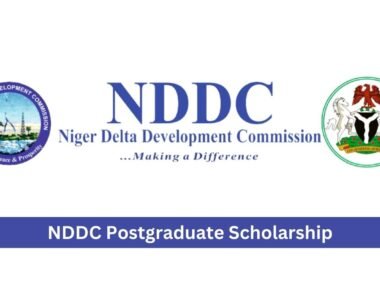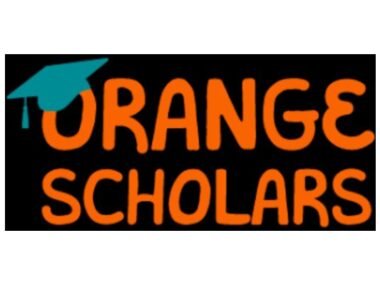Dartmouth College, an Ivy League institution in Hanover, New Hampshire, is renowned for its commitment to academic excellence, undergraduate teaching, and fostering a tight-knit community. As one of the oldest and most prestigious universities in the United States, Dartmouth attracts students from diverse backgrounds who aspire to excel in various fields. However, the cost of attending an Ivy League school can be a significant barrier for many.
To address this, Dartmouth offers a robust financial aid program, but its approach to merit-based scholarships differs from many other institutions. This article provides a comprehensive exploration of Dartmouth Merit Scholarships, their availability, eligibility criteria, application processes, and strategies for securing financial aid, with a focus on information relevant to the 2025–2026 academic year.
Understanding Dartmouth’s Financial Aid Philosophy
Dartmouth College is committed to making education accessible to all admitted students, regardless of their financial background. Unlike many universities that offer a mix of need-based and merit-based aid, Dartmouth’s financial aid program is exclusively need-based for undergraduate students. This means that Dartmouth Merit Scholarships, as traditionally defined (awards based on academic achievement, leadership, or other non-financial criteria), are not offered directly by the college for undergraduate programs. Instead, Dartmouth meets 100% of demonstrated financial need through grants, scholarships, and work-study opportunities, ensuring that no student is required to take out loans as part of their financial aid package.
This distinction is critical for prospective students researching Dartmouth Merit Scholarships. While the college does not provide merit-based awards for undergraduates, it offers generous need-based scholarships, and there are limited merit-based opportunities for graduate students through external organizations. Additionally, Dartmouth facilitates access to prestigious external scholarships and fellowships, which can serve as merit-based funding sources. This article will clarify these distinctions, explore available opportunities, and provide guidance on how students can maximize their financial aid at Dartmouth.
The Myth of Dartmouth Merit Scholarships for Undergraduates
A common misconception among applicants is that Dartmouth offers Dartmouth Merit Scholarships for undergraduates based on academic excellence, athletic ability, or artistic talent. However, Dartmouth’s official policy explicitly states that all undergraduate scholarship funds are awarded based on financial need, not merit. This policy aligns with most Ivy League institutions, which prioritize need-based aid to ensure equitable access to education. For example, Dartmouth’s financial aid website notes that grants and scholarships are “funds for your education that do not need to be repaid,” and these are determined solely by financial need as assessed through forms like the FAFSA and CSS Profile.
Despite this, some confusion persists, as seen in online discussions. For instance, a 2024 Reddit thread on r/ApplyingToCollege questioned the availability of Dartmouth Merit Scholarships, with users mistakenly referencing awards at other schools like Duke or Vanderbilt. The thread clarified that Dartmouth does not offer merit-based aid, and claims of such scholarships may stem from misunderstandings or external awards associated with Dartmouth. Additionally, some students may confuse named scholarships, such as those paired with financial aid recipients through Dartmouth’s endowed funds, with merit-based awards. These named scholarships, supported by over 1,000 donor-funded endowments, are still need-based but may carry prestigious titles like the Jack Byrnes Scholar, leading to misinterpretation.
For undergraduates, the absence of Dartmouth Merit Scholarships does not mean a lack of financial support. Dartmouth’s need-based aid is comprehensive, with awards ranging from $1,000 to over $70,000, depending on a family’s financial circumstances. Families with incomes below $125,000 and typical assets qualify for a zero-parent-contribution package, making Dartmouth one of the most generous institutions for low- and middle-income students.
Merit-Based Opportunities for Graduate Students
While undergraduate Dartmouth Merit Scholarships are not available, graduate students in Dartmouth’s professional and academic programs have access to limited merit-based awards. For example, the Dartmouth Health Sciences programs, including the Master of Public Health (MPH) and Master of Science (MS), offer scholarships funded by alumni, corporations, and nonprofit foundations. These awards are based on merit criteria such as exceptional academic performance, leadership, professional accomplishments, service, and contributions to the diversity of the Dartmouth community.
Recipients of these graduate-level Dartmouth Merit Scholarships are typically notified upon admission, and funds are distributed equally across terms of enrollment. However, these scholarships are limited and may not cover the full cost of attendance, so students are encouraged to explore additional funding sources, such as external fellowships or assistantships. Dartmouth’s financial aid office also provides resources like financial literacy workshops to help graduate students manage costs.
External Merit Scholarships and Dartmouth’s Role
Although Dartmouth does not offer Dartmouth Merit Scholarships for undergraduates, the college actively supports students in pursuing external merit-based scholarships and fellowships. These awards, offered by private organizations, nonprofits, or government entities, can supplement Dartmouth’s need-based aid and reduce components of the financial aid package, such as work-study or summer earnings expectations. Below are key external merit-based opportunities that Dartmouth students can pursue:
1. Prestigious National Scholarships
Dartmouth’s Office of Undergraduate Advising and Research (UGAR) and the Office of Fellowships assist students in applying for prestigious awards like the National Science Foundation Graduate Research Fellowship, the Rhodes Scholarship, and the Marshall Scholarship. These highly competitive scholarships recognize academic excellence, leadership, and research potential. For example, the STAMPS Scholars Program at Dartmouth funds educational projects (not tuition) for undergraduates, offering opportunities for research or experiential learning.
2. Scholarships from External Organizations
Students can apply for scholarships from organizations like the Horatio Alger Association, the Gates Millennium Scholars, or the Coca-Cola Scholars Program, which award funds based on academic merit, leadership, or community service. Dartmouth’s financial aid office encourages students to use scholarship search engines and apply for as many external awards as possible. Funds from these scholarships can be used to cover indirect costs (e.g., books, travel) or replace work-study components of the aid package.
3. QuestBridge National College Match
For high-achieving, low-income students, the QuestBridge National College Match program provides a pathway to Dartmouth with a full scholarship covering tuition, room, board, and other expenses. While primarily need-based, the program selects students based on academic excellence and leadership, making it a quasi-merit-based opportunity. QuestBridge Match students also receive scholarships for a computer and health insurance if needed.
To apply for external Dartmouth Merit Scholarships, students should research opportunities early, prepare strong essays, and secure compelling recommendation letters. Dartmouth’s Office of Fellowships offers personalized guidance to help students craft competitive applications.
Need-Based Scholarships at Dartmouth
Since Dartmouth Merit Scholarships are not available for undergraduates, the college’s need-based scholarships are the cornerstone of its financial aid program. These scholarships are designed to meet 100% of demonstrated need, ensuring that no student is deterred by cost. Key features of Dartmouth’s need-based scholarships include:
-
Loan-Free Policy: Dartmouth does not include loans in need-based financial aid packages, relying instead on grants, scholarships, and work-study. This policy reduces the financial burden on graduates, who have among the lowest average student loan debt in the country.
-
Zero Parent Contribution for Low-Income Families: Families with incomes below $125,000 and typical assets have no expected parent contribution, with awards covering tuition, fees, housing, and food.
-
Comprehensive Cost of Attendance: Dartmouth’s financial aid covers both direct costs (tuition, fees, housing, food) and indirect costs (books, travel, personal expenses). A travel allowance is included based on the student’s state of residence, though students must arrange and pay for travel upfront.
-
Endowed Scholarships: Dartmouth has over 1,000 named endowed scholarship funds, which are paired with eligible students by the Financial Aid Office. Recipients are notified by email and may be asked to write thank-you letters to donors. These scholarships do not increase the aid amount but add a personal connection to the funding source.
For the 2024–2025 academic year, a typical financial aid package for a family with zero expected parent contribution includes $82,143 in scholarships and grants, $2,450 in student employment, and a $1,000 summer earnings expectation.
Eligibility and Application Process
Eligibility for Need-Based Scholarships
To qualify for Dartmouth’s need-based scholarships, students must demonstrate financial need through the following:
-
FAFSA: The Free Application for Federal Student Aid (FAFSA) determines eligibility for federal aid and informs Dartmouth’s need assessment. Dartmouth’s FAFSA code is 002573.
-
CSS Profile: The CSS Profile, submitted through the College Board, provides a detailed analysis of family finances, including income, assets, and expenses.
-
Additional Documentation: Students may need to submit tax returns, W-2 forms, or other financial documents to verify information.
There is no income cutoff for scholarship consideration, and families earning over $125,000 may still qualify for aid based on individual circumstances. International students are also eligible for need-based aid, with Dartmouth using the CSS Profile to assess need.
Application Process
The application process for need-based scholarships at Dartmouth is integrated with the admissions process:
-
Submit Admissions Application: Apply to Dartmouth via the Common Application or Coalition Application. Early Decision applicants should submit financial aid forms by November 1, while Regular Decision applicants should aim for January 2.
-
Complete FAFSA and CSS Profile: Submit both forms by the relevant deadline to ensure timely aid processing. Early submission is critical, as funds are allocated on a rolling basis.
-
Provide Additional Documentation: Respond promptly to requests for additional financial information to avoid delays in aid offers.
-
Apply for External Scholarships: Research and apply for external merit-based scholarships to supplement Dartmouth’s aid package.
-
Review Financial Aid Offer: Once admitted, students receive a financial aid offer letter outlining scholarships, grants, and work-study. The offer details the family contribution, including student employment and summer earnings expectations.
Tips for a Successful Application
-
Apply Early: Early Decision applicants receive aid decisions with their admissions offer, while Regular Decision applicants should submit forms by January to maximize aid.
-
Highlight Achievements: While Dartmouth Merit Scholarships are not available, strong academic and extracurricular profiles strengthen admissions and external scholarship applications. Aim for a GPA of 3.9 or higher and SAT/ACT scores above 1500/34.
-
Seek Guidance: Work with Dartmouth’s Office of Fellowships or high school counselors to identify external scholarships and craft compelling applications.
-
Be Transparent: Provide accurate and complete financial information on the FAFSA and CSS Profile to ensure an accurate need assessment.
-
Avoid Scams: Legitimate scholarships do not require payment to apply. Verify opportunities through reputable sources like Dartmouth’s financial aid office.
Maximizing Financial Aid at Dartmouth
To maximize financial aid in the absence of Dartmouth Merit Scholarships, students can pursue a combination of need-based aid, external scholarships, and other funding sources:
-
Work-Study: Dartmouth includes student employment in most aid packages, with opportunities to work on campus for $2,450–$3,000 per year. These earnings cover indirect costs like books and personal expenses.
-
Summer Earnings: Students are expected to contribute $1,000–$3,000 from summer or leave-term employment, which can be replaced with external scholarship funds.
-
Federal and State Grants: Eligible students may receive Pell Grants or state-specific grants, which are integrated into Dartmouth’s aid package.
-
Private Loans: While not included in need-based packages, students can request loans to cover family contributions or additional expenses. Dartmouth provides counseling to ensure informed borrowing decisions.
-
QuestBridge and Similar Programs: Low-income students should apply to QuestBridge or other programs that partner with Dartmouth to secure full scholarships.
Challenges and Considerations
Securing financial aid at Dartmouth comes with challenges:
-
No Merit-Based Aid for Undergraduates: The absence of Dartmouth Merit Scholarships limits options for students who don’t qualify for need-based aid but seek recognition for academic or extracurricular achievements.
-
Competitive External Scholarships: External merit-based scholarships are highly competitive, requiring strong applications and early preparation.
-
Renewal Requirements: Need-based scholarships are renewable for four years, provided students maintain academic progress, but external scholarships may have additional requirements.
-
Indirect Costs: While Dartmouth covers travel allowances and computer costs for QuestBridge students, other students must budget for indirect expenses like travel and personal items.
Recent Trends and Updates (2020–2025)
Dartmouth’s commitment to need-based aid has strengthened in recent years. In 2024–2025, the college increased scholarship packages to match rising costs, ensuring that aid keeps pace with tuition, fees, and living expenses. The zero-parent-contribution policy for families earning under $125,000, introduced in recent years, has made Dartmouth more accessible to low- and middle-income students. Additionally, the college’s test-optional admissions policy, in place since 2020, allows students to forgo SAT/ACT scores, with admissions officers emphasizing grades, essays, and extracurriculars—factors that can also strengthen external scholarship applications.
The 2023–2024 supplemental essay prompts reflect Dartmouth’s focus on diversity, personal growth, and community contributions, which align with the criteria for many external merit-based scholarships. Students applying for such scholarships should tailor their Dartmouth essays to highlight qualities like leadership and service, which are valued by external organizations.
Comparison with Other Institutions
Unlike Dartmouth, some top-tier schools like Duke, Vanderbilt, and Rice offer Dartmouth Merit Scholarships or their equivalents, requiring additional essays or earlier deadlines. For example, Vanderbilt’s Ingram Scholars Program awards full-tuition scholarships based on academic merit and leadership, while Dartmouth relies solely on need-based aid for undergraduates. This distinction may influence students’ decisions if merit-based aid is a priority. However, Dartmouth’s loan-free policy and comprehensive need-based aid make it competitive for students with financial need.
Conclusion
Dartmouth Merit Scholarships, as traditionally understood, are not available for undergraduate students, as Dartmouth focuses exclusively on need-based aid to ensure equitable access to education. However, the college’s financial aid program is among the most generous in the Ivy League, meeting 100% of demonstrated need with loan-free packages, endowed scholarships, and work-study opportunities. Graduate students can access limited merit-based scholarships through programs like Dartmouth Health Sciences, and all students can pursue external merit-based awards with support from Dartmouth’s advising resources. By understanding Dartmouth’s aid policies, applying early, and exploring external opportunities, students can make a Dartmouth education financially attainable.
For more information, visit Dartmouth’s financial aid website (financialaid.dartmouth.edu) or contact the Financial Aid Office at 1-800-443-3605. Students should also explore external scholarship databases and work with Dartmouth’s Office of Fellowships to identify merit-based opportunities. With careful planning and a proactive approach, students can leverage Dartmouth’s resources and external awards to fund their education and thrive in Hanover’s vibrant academic community.







